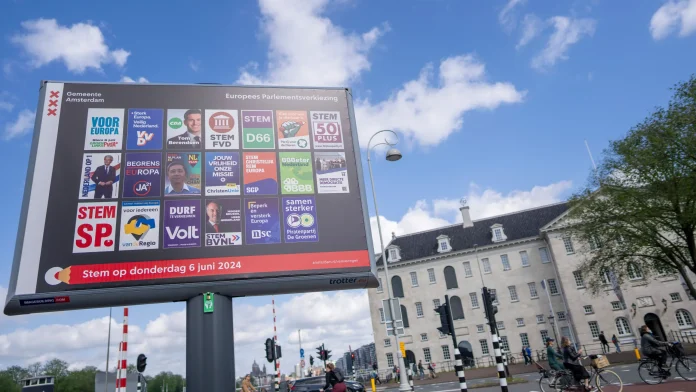Polling stations opened on Thursday in the Netherlands to begin four days of voting in European Union parliamentary elections, according to AP News.
Estonians can vote for six days starting from Monday, but the Netherlands is the only EU country to start the one-day voting earlier. Ireland follows on Friday and the rest of the EU over the weekend.
EU-wide results will be announced on Sunday evening after all member states have completed their voting. The EU election is the second largest in the world after India’s, and the stakes are high.
Nearly 400 million voters will choose 720 members of the European Parliament from the Arctic Circle to the fringes of Africa and Asia. They will influence issues ranging from global climate policy and defence to migration and geopolitical relations with China and the United States.
The Netherlands has long been an unwavering supporter of EU policy. However, research by the think tank Clingendael points to dissatisfaction with the EU among the Dutch. While most of them believe the Netherlands should remain in the bloc, many also believe the country should be more self-sufficient.
Election details
The number of members elected in each country depends on the size of the population. It ranges from six for Malta, Luxembourg, and Cyprus to 96 for Germany. In 2019, Europeans elected 751 lawmakers.
After the United Kingdom’s exit from the EU in 2020, the number of MEPs fell to 705. Some of the 73 seats previously held by British MEPs were redistributed among other member states.
After the elections, MEPs will elect their president at the first plenary session on July 16-19. Then, most likely in September, they will nominate the president of the European Commission on the proposal of member states. In 2019, von der Leyen won the vote by a narrow margin, becoming the first woman to head the institution.
